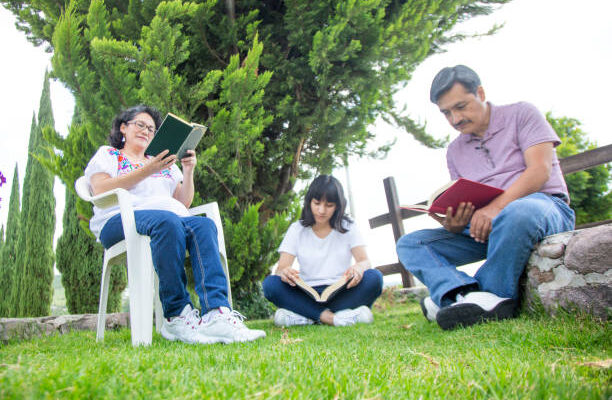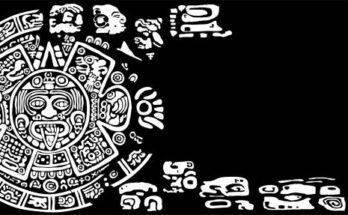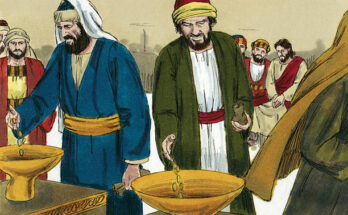Since religion is an essential part of human culture and identity, it has always had a big impact on how societies have developed. People’s opinions and concepts evolve with time, just like civilizations do. The study of generational dynamics within religions offers a fascinating lens through which we can understand how different age groups interpret and practice their faith. This article explores the complex web of generational differences in religious practises, looking at how different age groups approach their spiritual journeys with different viewpoints, difficulties, and modifications.
The Silent Generation: Stewards of Tradition
 (Photo from iStock)
(Photo from iStock)
Born between the mid-1920s and early 1940s, the Silent Generation witnessed the aftermath of World War II and the subsequent reconstruction of a shattered world. This generation, having grown up during an era of reconstruction and economic recovery, has a propensity to uphold traditional religious ideals. Many found solace in organised religion, which gave them a moral compass in a world that was changing quickly.
In the United States, for instance, the Silent Generation largely adhered to mainstream Protestant denominations or Catholicism. Church attendance was often a central aspect of community life, reflecting a sense of communal identity and shared values. The Silent Generation’s religious practices were deeply rooted in tradition, with an emphasis on rituals and established doctrines.
As stewards of tradition, the Silent Generation passed down their religious values to subsequent generations, fostering a sense of continuity and stability. Their commitment to religious institutions and practices set the stage for the evolving dynamics of faith in the years to come.
Baby Boomers: Questioning Authority and Seeking Spirituality
The Baby Boomers, born between 1946 and 1964, experienced a cultural revolution during their formative years. As they came of age in the 1960s and 1970s, societal norms were challenged, and a wave of individualism and self-expression swept across the Western world.
The religious landscape was significantly impacted by this turbulent time.
Many Baby Boomers eschewed participation in the formalised aspects of religion in favour of a more contemplative and spiritual approach. New Age spirituality, alternative belief systems, and Eastern philosophies emerged as a result of the generation’s rejection of established religion organisations. The quest for personal meaning and transcendence became a hallmark of Baby Boomers’ spiritual journeys.
It’s important to remember, though, that not all Baby Boomers gave up on organised religion. Some embraced more liberal and inclusive interpretations of their faith, contributing to the diversification of religious expressions within the generation.
Generation X: Navigating Complexity and Pluralism
 (Photo from iStock)
(Photo from iStock)
Born between the early 1960s and early 1980s, Generation X faced the challenges of a rapidly changing global landscape. The end of the Cold War, advancements in technology, and increasing cultural diversity shaped their worldview. In the realm of religion, Generation X displayed a tendency toward individualism and a pragmatic approach to spirituality.
Unlike the Baby Boomers, Generation X chose to be less rigid in their religious convictions as opposed to rejecting religion outright. This generation witnessed the rise of evangelical Christianity, the spread of charismatic movements, and the emergence of non-denominational churches. The increasing diversity of religions was a reflection of the generation’s desire for a spirituality that allowed for individual freedom and decision-making.
Moreover, Generation X experienced the advent of the digital age, which transformed the way people accessed information about different religions. The internet became a powerful tool for exploration, allowing individuals to engage with diverse religious perspectives and practices from the comfort of their homes.
Millennials: Embracing Diversity and Social Justice
The Millennials, born between the early 1980s and mid-1990s, grew up in a world marked by globalization, technological advancements, and increasing cultural interconnectedness. This generation witnessed a shift towards inclusivity, diversity, and social justice, influencing their approach to religion.
Millennials are characterized by a more pluralistic and accepting view of spirituality. Many are open to blending elements from different religious traditions or identifying as spiritual but not religious. Their spiritual practises frequently involve an emphasis on social justice issues, environmental concerns, and humanitarian initiatives.
Social media platforms have become spaces for sharing and shaping religious experiences, fostering virtual communities that transcend geographical boundaries. The accessibility of information has allowed Millennials to explore a wide range of spiritual practices and engage in meaningful conversations about faith.
Generation Z: Navigating a Post-Traditional Landscape
As the first generation to enter adulthood in the twenty-first century, Generation Z has a world of incredible connectivity, cutting-edge technology, and swift change to manage. Born sometime between the start of the 2010s and the middle of the 1990s. The relationship between organised religion and this generation is complex.
Instead, they tend to approach spirituality in a more fluid and individualistic manner. Compared to earlier generations, Generation Z is more likely to identify as one of the religious “nones”. Or people who identify as atheists, agnostics, or unaffiliated with a particular faith.
This does not, however, imply a lack of spirituality. Generation Z is known for its interest in mindfulness, ethical living, and social activism. They may not adhere to traditional religious organisations. But they do incorporate moral principles and spiritual aspects into their daily lives.
Conclusion: The Evolving Tapestry of Faith
 (Photo from iStock)
(Photo from iStock)
The terrain of religious practises and beliefs is significantly shaped by generational dynamics. Each generation brings its unique perspective, influenced by the historical, cultural, and technological context of its time. The Silent Generation laid the foundations of tradition. Baby Boomers questioned and sought individual spirituality, Generation X navigated complexity and pluralism. Millennials embraced diversity and social justice, and Generation Z is navigating a post-traditional landscape.
As we navigate the complex web of religious generational specifics. It becomes evident that the evolution of faith is a dynamic and ongoing process. The interplay between tradition and innovation, community and individualism. And the physical and virtual realms continues to shape. How people experience and express their spirituality. In this ever-changing landscape. Understanding generational dynamics is essential for appreciating the diverse ways in which individuals connect. With the divine and discover life’s purpose.
Reference:
Sage Journals
Want to know about creation of the world, click on the link below:
How Can Religion Be Created? Exploring the Origins and Evolution




